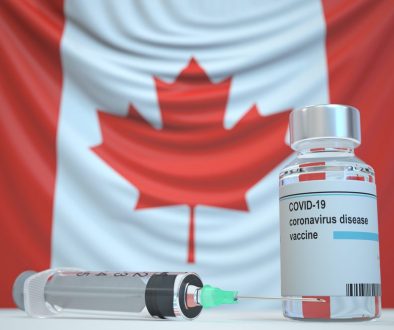Everything You Have to Know About Probiotics and Traveling
It’s a given that, when you’re traveling, you have to take along your passport and tickets. But what about probiotics? Should you be packing them as well?
If you want to stay healthy while on the road, the answer is yes. Probiotics can help you stay healthy on the road, fight off bad bacteria, and even boost your immune system.
Traveling can take a toll on your gut health. Between the different food and water you’ll consume and the stress of being in a new place, your digestive system can go into overdrive. Taking probiotics can help offset some of these effects and keep you feeling your best.
So, how do you choose the right probiotic for traveling? And what should you look for when purchasing one? Here’s everything you need to know about probiotics and traveling.
What are Probiotics and Why Do you Need Them?
Probiotics are live bacteria and yeasts that are good for your health, especially your digestive system. They come in various forms, including capsules, tablets, drinks, and powders.
Probiotics are live bacteria that help maintain a healthy gut. Other than supplements, probiotics can be found in some fermented foods, like yogurt and kefir.
The use of probiotics is not just limited to adults. Studies have shown that infants and children can benefit from the use of probiotics too. Taking probiotics is costly though, as they are generally expensive and will not be covered by insurance.
Why are Probiotics Expensive?
The manufacturing and storing of high-quality probiotic supplements is both expensive and time-consuming. And, as a consumer, will have to cover these expenses. To enter the market, brands confront a slew of problems. It’s crucial for bacteria to stay in sufficient quantities till the expiration date on the carton.
Apart from that, supplements are kept at ambient temperatures. It’s possible that compared to refrigerated/frozen storage, it will result in viability loss. Probiotics of all sizes and forms are currently available on the market.
However, to produce them, the necessary good bacteria must be safely isolated, packaged, and sold. Also, each product should contain a specific number of CFU and maintain those levels before purchase.
What is the Difference Between Probiotics and Prebiotics?
Prebiotics and probiotics are two of the most common types of supplements available on the market and, while their names are similar, they are pretty different.
Prebiotics are non-digestible plant fiber that stimulate the growth and activity of bacteria in our gut to produce short-chain fatty acids that promote health. They also help increase nutrient absorption, which is a vital part of any diet.
The easiest way to support prebiotic fiber is through consuming prebiotic-rich foods, like asparagus, artichokes, bananas, and oats. Some of these foods contain more sugar than others, so work to include a variety of fruits, vegetables, whole grains and legumes in your diet, each with their own unique fiber content.
On the other hand, Probiotics are live microorganisms that can be found in some foods and in dietary supplements. They are thought to help with digestive health by maintaining a healthy balance of microorganisms in the gut.
You can also support probiotic bacteria by eating fermented foods (pickles), drinking kombucha or kefir and taking probiotic supplements like Vitalbiotix.
Which is Better – Probiotics or Prebiotics?
The advantages of probiotics are similar to those of prebiotics. Prebiotics can help keep your gut healthy by reducing antibiotic-related health conditions and providing other advantages. However, while we know some of the benefits of prebiotics, there is much less study than probiotics.
Should You Take Probiotics When Traveling?
With all the bacteria and viruses you can be exposed to when traveling and the stress of different situations on the road, your gut might suffer.
Probiotics can help offset some of these effects and keep you feeling your best. They can help you stay regular, fight off bad bacteria, and even boost your immune system.
So yes, you should definitely take probiotics with you when traveling. That being said, you should be starting your probiotics treatment at least 2 weeks before starting your trip as it will help build the bacteria in the gut.
Apart from that, these 2 weeks will boost your immune system. Of course, even after these initial period of time, you should continue taking probiotics while traveling.
What is the Best Form of Probiotics While Traveling?
Some people might think that taking probiotics while traveling is not necessary. But it is necessary to maintain good gut health and avoid travel-related gastrointestinal issues.
The best form of probiotics for travel are pills, beads, and yogurt as they survive better in the stomach compared to powders and liquids.
One probiotics we particularly recommend is Vitalbiotix as it’s gluten free, natural, and doesn’t only improve your digestion but your overall health too.
More Tips When Taking Probiotics
Knowing the best probiotics and form isn’t always enough to start building a stronger immune system. For this reason, let’s go more into details with these tips to take probiotics.
- Choose a probiotic that is easy to swallow, like chewable tablets or capsules.
- Take the probiotic with food or drink at least 30 minutes before boarding or 2 hours after eating your last meal before boarding.
- Take enough probiotics for the whole duration of your trip, even if you are only going for one day.
Last but not least, get in touch with your doctor to ask about any specific dosages of medication you should be taking when traveling abroad.
Conclusion
If you’re traveling and want to ensure that your gut microbiome is healthy, it may be good to take probiotics.
As a result of their gut health’s influence on overall health, probiotics are an important part of life for many people. In addition to the benefits they provide in terms of digestion and immunity, research has shown that probiotics can also help with mood disorders like anxiety.
All this is to say that it’s important you maintain healthy levels during travel by taking your supplements such as Vitalbiotix as recommended before departure.



